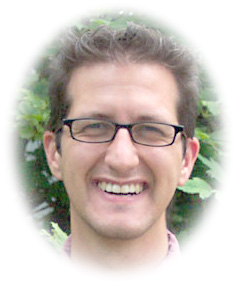
by Jarrod Shapiro, DPM
Joined practice July 2006 of
John K Throckmorton, DPM
Lansing, Michigan
|
I used to wonder when I met a doctor who didn't seem current in his medical knowledge, how that physician could let his skills get so far behind. Now, as a practicing physician, I'm starting to realize how easily that can happen. How is it possible? One word: laziness.
Now this word -- laziness -- really needs some explanation. It's not the laziness you're thinking. It's not the "just let me lay in bed today" laziness or the pernicious laziness that leads people to cut corners because it's more convenient at the time. |
|
How it Happens
This laziness I'm talking about is a very slow and insidious process, where the doctor becomes distracted by the day to day issues in her life. A busy practice, surgery, business concerns, advertising, office staff responsibilities, family responsibilities, among others, pull the doctor in different directions. Continuing education is pushed to the wayside. The doctor tells himself, "I can wait to read that journal" or "I don't have the time or money to attend that course." Time goes by as the doctor dutifully attends to his/her duties. Time also goes by as the doctor becomes less and less current in his knowledge. Years later, that same doctor is doing an Austin for every bunion that walks in the door and treats every dystrophic nail as onychomycosis. pull the doctor in different directions. Continuing education is pushed to the wayside. The doctor tells himself, "I can wait to read that journal" or "I don't have the time or money to attend that course." Time goes by as the doctor dutifully attends to his/her duties. Time also goes by as the doctor becomes less and less current in his knowledge. Years later, that same doctor is doing an Austin for every bunion that walks in the door and treats every dystrophic nail as onychomycosis.
It takes years to become this doctor. The knowledge disappears, the surgical skills become limited. We've all experienced these doctors, whether in training or in practice. If you want to be this doctor, then stop reading.
How to Overcome It
We've also seen the opposite: that inspiring physician who seems to know everything, has modern surgical skills, and is current with modern medical care. Amazingly, that physician also seems to control his business and personal life very effectively. This is the doctor I’m striving to be. How can we all become this physician? Here are some suggestions from a doctor working every day to get there.
- Make continuing education a lifetime habit. Hopefully, your residency program has pushed you into this habit already.
- Schedule weekly time to focus on educating yourself. Just like scheduling office hours or other responsibilities, schedule education into your week.
- When you see something in the office that you’re gray on, add it to a list of review topics. Then actually review those topics.
- Scan the journals and trade magazines, then read in depth the articles you find interesting and legitimate. Remember, there’s a lot of junk in our journals. Some knowledge of evidence-based medicine will help you become a discriminating reader.
- Find a couple of good national meetings or courses and go to them in alternating years. I’ve found the conferences a bit repetitive when you go in consecutive years. The APMA, ACFAS, and ACFAS surgical skills courses have high yields.
- Use the Internet. PRESENT Courseware is a good resource. Consider also the ACFAS podcasts and PRESENT Diabetes which gives you access to a community of practitioners to discuss issues with.
- Go to local hospital meetings. Staff meetings often have information useful to the practicing podiatrist. I recently went to an update on MRSA treatment, for example, that was very informative.
Remember, medical education is a career-long process. You’ve entered a career that is made for lifetime learning. Embrace it! You have a choice to become that fabulous physician you’ve admired through your training. Remember, you also have the choice to be the other lazy doctor. Make the right choice.

Jarrod Shapiro, DPM
PRESENT New Docs Editor
[email protected]
|